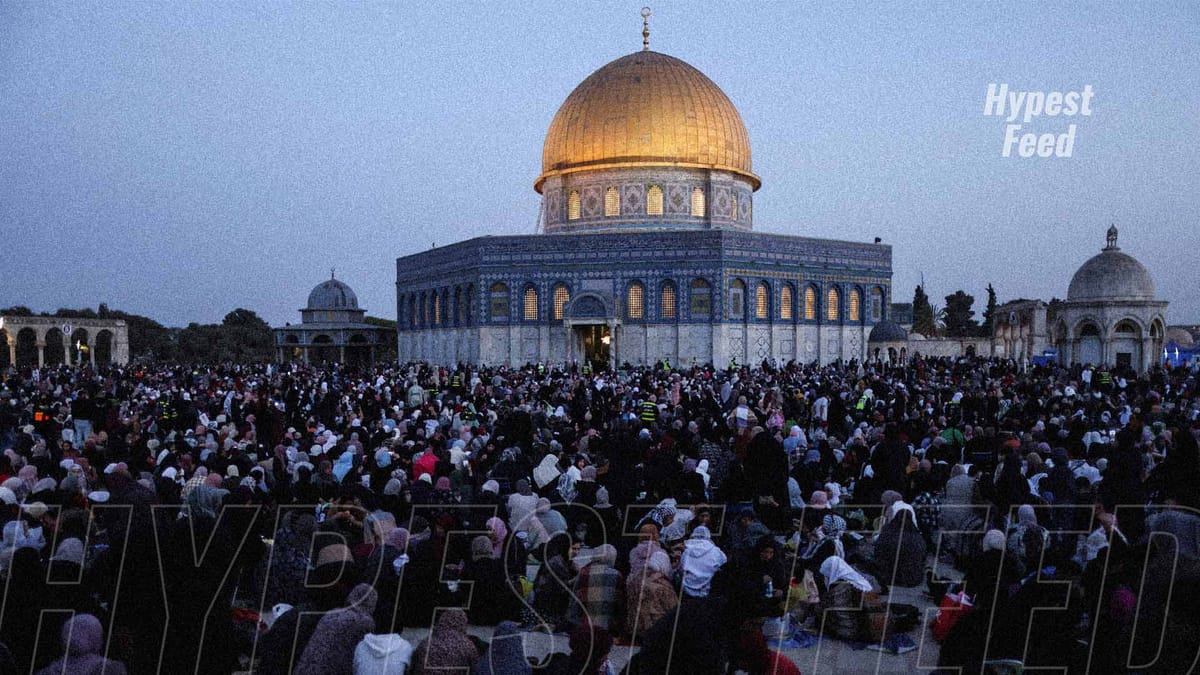Renewed concerns are emerging as the Islamic holy month of Ramadan approaches, particularly regarding the potential spread of violence to Jerusalem, where a lasting truce remains elusive.
Hamas, a Palestinian militant group, has reiterated its call for Palestinians to increase their visits to the al-Aqsa Mosque, a significant site for Muslims. Meanwhile, Israel has accused Hamas of seeking to escalate tensions in the region during Ramadan, which is set to begin on March 11 for Palestinians.
The al-Aqsa Mosque holds great religious significance as the third holiest shrine in Islam and serves as a place of worship for local Muslims. However, it is also the holiest site in Judaism, known as Temple Mount, making it a frequent flashpoint in the Israel-Palestinian conflict.
As Palestinians prepare for the start of Ramadan, there is a palpable sense of concern among worshippers, even in moments of apparent calm. Many express a reluctance to engage in the usual celebrations and traditions due to the ongoing conflict, with one woman, Ayat, lamenting the somber mood and the overshadowing effects of the situation in Gaza.
Despite hopes for a 40-day ceasefire leading up to Ramadan, the prospects have dimmed. Egyptian sources indicate ongoing efforts to mediate between Hamas and Israel, with a planned meeting between mediators and Hamas representatives scheduled for Sunday. However, achieving a resolution remains uncertain.
In the midst of these tensions, Israel's efforts to secure the release of dozens of hostages have continued, with the country's spy chief reportedly meeting with their US counterpart. However, Israel's Prime Minister's office has expressed frustration, accusing Hamas of being uncooperative and seemingly disinterested in reaching a deal.
As the region braces for the challenges of Ramadan against the backdrop of ongoing conflict and political tensions, many, like Abu Nader, can only hope and pray for better times ahead.
As tensions rise in anticipation of Ramadan in Jerusalem, Israeli government spokesman Eylon Levy has assured that measures will be taken to uphold the freedom of worship while preventing the escalation of violence.
"Ramadan is often exploited by extremist elements to incite violence. We are committed to preventing that," Levy affirmed to the BBC. "We will continue to facilitate access to the Temple Mount for worship, as we have done in previous years. It is our policy to maintain peace, and we will take action against anyone seeking to disrupt it."
In the shadow of the gold-gilded Dome of the Rock, I had the opportunity to speak with Dr. Imam Mustafa Abu Sway, a member of the Islamic Waqf council responsible for administering the al-Aqsa Mosque, also known as Haram al-Sharif.
"A few years ago, Israel allowed virtually unrestricted access for worshippers from the West Bank, and there were no incidents," Dr. Abu Sway noted. "People come here to worship, not to cause trouble. If Israeli police and security forces refrain from interfering, we hope everything will remain peaceful."
This year, the world's attention is particularly focused on Jerusalem, observing closely to see if peace can be maintained during this critical period.
The significance of the Temple Mount, especially during Ramadan, underscores the need for delicate management and vigilance to prevent any potential disturbances. As observers await developments, the hope remains that Jerusalem will serve as a model of peaceful coexistence and religious tolerance for the rest of the world.



Member discussion: